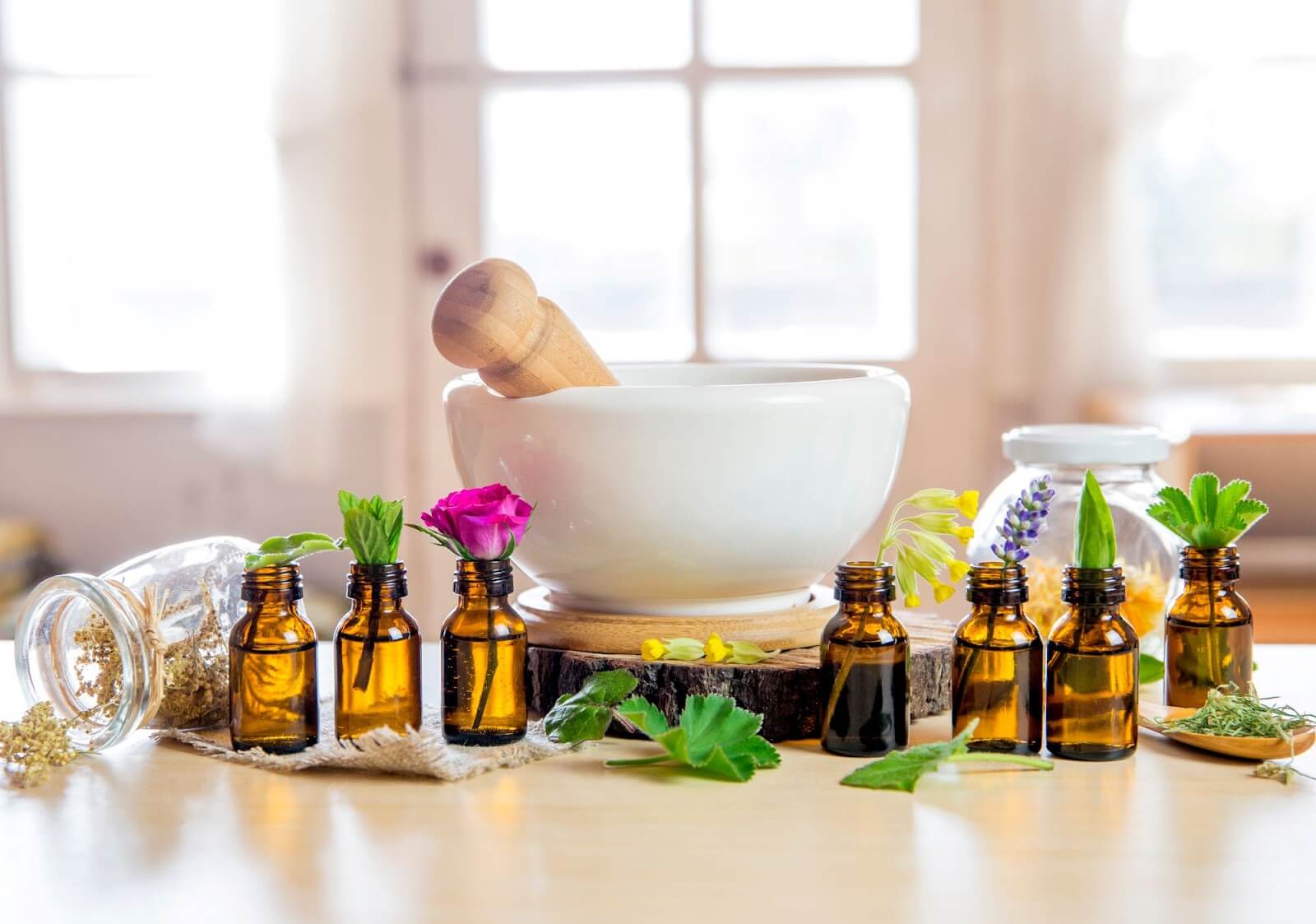Blog
Recent Posts
Which Essential Oils Are Good for What?
Posted on

Essential oils have gained tremendous popularity as people have realized their versatility and natural health benefits. Whether you’re looking to relax after a long day, alleviate headaches, or freshen up your home, natural essential oils offer countless uses. Their growing appeal lies in their ability to address wellness concerns without relying on harsh chemicals, making them an excellent addition to any natural lifestyle.
If you’re new to all-natural essential oils or love learning more about natural health, this guide will help you navigate the world of these remarkable products. We’ll cover common essential oils, their benefits, how to use them safely, and why choosing the best natural essential oils is crucial for both effectiveness and well-being.
Common Essential Oils and Their Benefits
Each natural essential oil has unique properties that can target specific concerns or enhance your daily routine. Known as one of the most versatile oils, lavender is often referred to as the "Swiss Army knife" of essential oils. It’s excellent for promoting relaxation, alleviating worry, relaxing the body, and soothing minor burns or skin irritation. It can be diffused into the air or diluted with a carrier oil to massage into the skin for calming effects.
Peppermint Oil
Peppermint oil is another popular essential oil for good reason. Not only is it a refreshing and invigorating oil, but it has a variety of applications for both health and household use. It’s been used to ease headaches, soothe muscle aches, and support digestion. Its cooling properties can also provide relief for itchy skin. It’s easy to use by applying diluted oil to the temples to ease headaches or diffusing it for an energizing aroma during the day.
Tea Tree Oil
A powerful antimicrobial, tea tree oil is a favorite for skin care and natural cleaning. Tea tree oil is commonly used to fight acne, treat minor cuts, and act as a natural deodorizer. Add a few drops to your facial cleanser or mix with water for a DIY disinfectant spray. It can be an effective bug repellent as well.
Eucalyptus Oil
Eucalyptus essential oil is a beloved oil among many crowds for its refreshing and purifying properties. It can help ease congestion and promote mental clarity. The scent is both relaxing and invigorating, making it the perfect oil to use for that at-home spa feel. It’s popular to diffuse during the cold season to clear airways or mix with a carrier oil for a chest rub.
Lemon Oil
Citrusy and uplifting, lemon oil is a go-to for cleaning and freshening the home. It’s a great mood booster, deodorizer, and natural degreaser. Many customers will add lemon oil to homemade cleaning products or diffuse it to create an energizing atmosphere. It’s a scent that many people find welcoming and fresh.
How to Use Essential Oils Properly
Understanding how to use natural essential oils is key to unlocking their full potential. Here are three common methods:
- Diffusion: Essential oils are dispersed into the air using a diffuser, filling your space with their therapeutic aromas. This method is ideal for relaxation, mood enhancement, and purifying the air. Start with three to five drops of oil in your diffuser and adjust based on your preferences.
- Topical Application: Essential oils are diluted with a carrier oil (like coconut, jojoba, or almond) and applied to the skin. Use this method for targeted relief, such as soothing sore muscles or moisturizing the skin. Just be sure to perform a patch test to ensure no adverse reactions occur, especially if you have sensitive skin.
- Household Cleaning: Essential oils are mixed with water, vinegar, or other natural ingredients to create non-toxic cleaning solutions. Use this route for freshening laundry, disinfecting surfaces, and repelling pests. A great idea is to combine lemon and tea tree oil with water in a spray bottle for an all-purpose cleaner.
Safety Tips and Precautions for Essential Oil Success
While essential oils offer many benefits, they are highly concentrated and must be used responsibly. Some essential oils are potent and need to be diluted to avoid skin sensitivity issues. Always dilute essential oils with a carrier oil before applying them to the skin to prevent irritation. A common ratio is one to two drops of essential oil per teaspoon of carrier oil. Perform a patch test by applying a small amount of diluted oil to your forearm. Wait 24 hours to ensure no irritation or allergic reaction occurs. Unless directed by a qualified professional, avoid ingesting essential oils, as they can be toxic in concentrated doses. Some essential oils can be harmful to pets or children if ingested or improperly used. Store oils safely and research which oils are safe for your furry friends.
Why Choose Natural Ginesis for Your Essential Oils?
When it comes to finding the best all-natural essential oils, quality matters. Natural Ginesis stands out as a trusted provider of non-toxic essential oils that deliver the highest standards of purity and safety. Our oils stand out because Natural Ginesis sources only the finest plant ingredients to create essential oils that are 100% pure and free from synthetic additives. This ensures that each drop of oil offers maximum therapeutic benefit. Our all-natural, non-toxic essential oils are environmentally friendly, making them ideal for families, pets, and eco-conscious households.
From relaxation and skincare to cleaning and pest control, our oils are designed to fit seamlessly into your daily life. Whether you’re new to essential oils or an experienced user, you’ll find endless ways to benefit from our products. At Natural Ginesis, we prioritize safety, efficacy, and sustainability. All our products undergo rigorous testing to ensure they meet our high standards for quality and purity.
Use Only the Best Natural Essential Oils for Your Health and Wellness Journey
Essential oils are a natural, versatile tool for enhancing your well-being and creating a healthier, happier home. They’re an opportunity to elevate your wellness the way nature intended by avoiding the risks associated with synthetic products. Whether you’re looking to relax with lavender, energize with lemon, or support your health with tea tree, the best natural essential oils can make a positive difference in your life. Natural Ginesis has the perfect oil for your needs. Start your journey toward a healthier, more natural lifestyle today! Explore our collection of all-natural essential oils and watch your life change for the better.

Essential Advice for Using Essential Oils Safely
Natural and non-toxic alternatives for everything from health and beauty products to household cleaning have rightfully become more popular in the last decade. Essential oils have emerged as one of the go-to solutions for those seeking a more holistic and environmentally friendly lifestyle. However, as with any potent natural remedy, using essential oils requires caution and knowledge [...]

Five Ways to Use Essential Oils
Humans have long used natural ingredients as supplements, fragrances, flavoring, and any number of remedies. Essential oils, which are obtained from organic matter such as trees, flowers, herbs, and fruits, are still used in many industries today. They’re typically used in one of three ways: diffused in the air, applied to the body, or ingested. This [...]
 Loading... Please wait...
Loading... Please wait...





 South Africa
South Africa